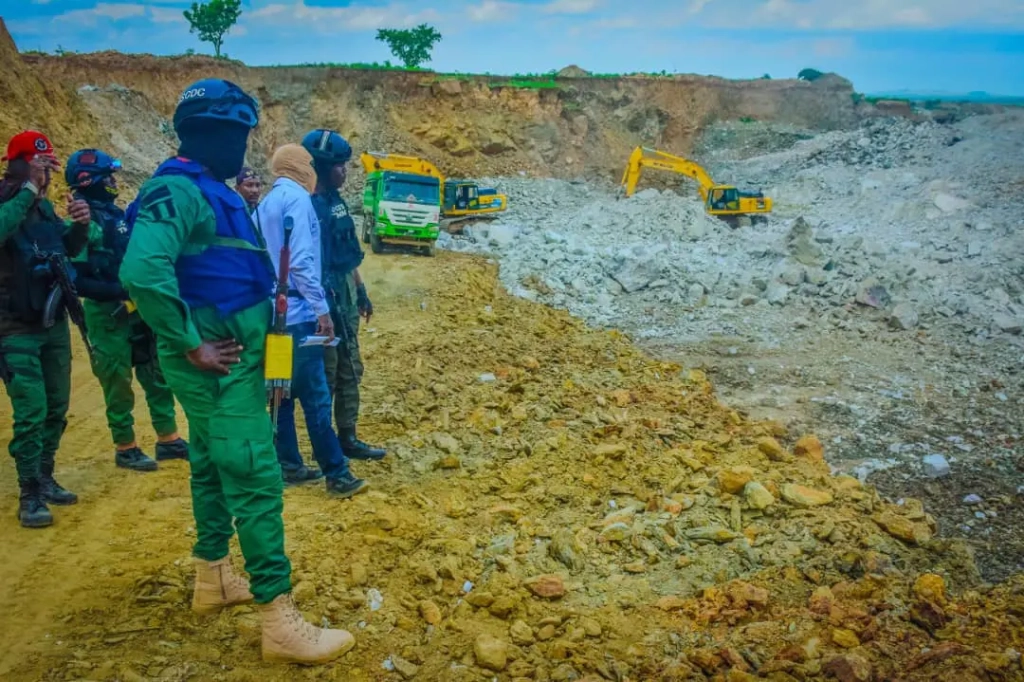Authorities in Nigeria have shut down an illegal lithium mining site in Kebbi State, uncovering what officials describe as a multi-trillion-naira scheme allegedly orchestrated by a local firm and foreign collaborators. The Nigeria Security and Civil Defence Corps (NSCDC) Mining Marshals closed the operation in Libata, accusing Three Crown Mines Ltd of defrauding the government of ₦1.43 trillion ($1.1 billion USD) over two years through unauthorized extraction of the mineral, critical for electric vehicles and renewable energy storage.
Investigators allege the company exploited its Small Scale Mining License beyond legal limits, encroaching on territories assigned to another operator. This violates Nigeria’s 2007 Minerals and Mining Act and 2011 regulations, authorities said, stressing that the activities disrupted revenue streams and weakened oversight of the country’s mineral wealth. The crackdown follows a court-authorized inspection involving security forces, state mining officers, and company representatives.
Three Crown Mines’ directors face heightened scrutiny after skipping a scheduled July 21 hearing in Abuja, citing “inconvenience” in a letter from their lawyer, Y.C. Maikyau. NSCDC officials dismissed the justification as a delay tactic, demanding prompt rescheduling. John Onoja, head of the Mining Marshals, warned of “zero tolerance” for resource theft, stating, “We will not negotiate Nigeria’s mineral fortune. This is non-negotiable.”
The case aligns with broader enforcement efforts under President Bola Tinubu’s administration, which has prioritized curbing illicit mining. Weeks earlier, Sterling Oil Exploration and Energy Production Company was fined ₦2 billion ($1.5 million USD) in a related probe. Officials link the renewed rigor to Nigeria’s economic strategy, noting lithium’s role in global decarbonization efforts. Unregulated extraction, they argue, risks both fiscal stability and national sovereignty.
NSCDC Commandant-General Abubakar Ahmed Audi emphasized the stakes: “Enforcing laws that safeguard revenue is foundational to prosperity. Cleaning up mining isn’t optional—it’s imperative.” The shutdown underscores growing tensions as Nigeria seeks to balance mineral wealth management with foreign investment interests, particularly in resources driving the green energy transition. With lithium demand surging worldwide, the case highlights vulnerabilities in resource governance and the tightening scrutiny of extraction activities across Africa.
